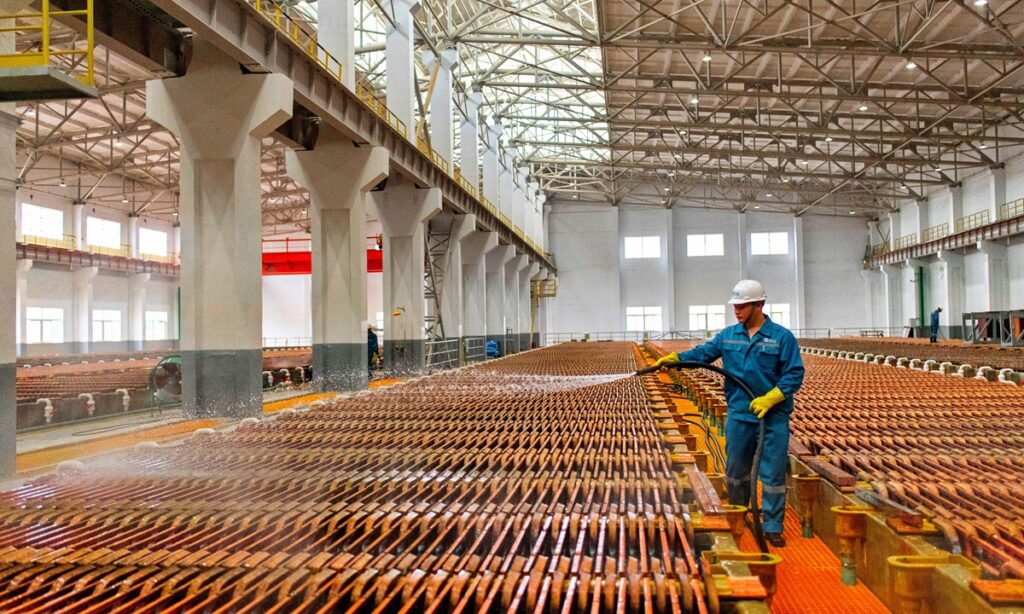Seven Chinese government departments including the Ministry of Industry and Information Technology (MIIT) on Thursday jointly issued a work plan targeting the promotion and steady growth of the non-ferrous metal industry, aiming to achieve a year-on-year industrial increase of 5.5 percent in 2023. It also aims to accelerate domestic exploration and utilization of strategic metals in short supply such as copper, nickel and lithium by formulating a dedicated development plan for these key resources.
The work plan sets a major industrial target of maintaining the steady growth for metals including copper and aluminum with the average annual growth for 10 non-ferrous metals to reach around 5 percent from 2023 to 2024. The work plan stressed the need to realize positive progress in the development of domestic resources, according to a statement released by the MIIT.
The work plan will implement measures covering four aspects including stepping up the supply capacity, intensifying technological upgrading, upgrading consumption and optimizing trade.
For instance, the plan vowed to accelerate the development and utilization of strategic resources. The plan also stated to increase domestic exploration and development efforts targeting resources including copper, aluminum, nickel, lithium, platinum, and formulate plans for the industrial development and exploitation for key resources such as lithium. It also proposed a range of measures backed by extensive government support.
As for dedicated support targeting corresponding enterprises, the plan vowed to cultivate more high-quality companies while promoting their development through leveraging targeting resources to further increase their efficiency.
China’s non-ferrous metal industry has remained a stable operation. In the first half of 2023, the industrial added value of the designated enterprises increased by 5.6 percent year-on-year while the fixed asset investment grew by 12.4 percent compared with last year, official data showed. The total import and export reached $168.9 billion, up 7.5 percent year-on-year.
However, the complex and volatile global political and economic environment and global economic slowdown have caused the commodity prices for metals like cooper and alumni to shrink, which further squeezed the industry’s profitability, according to another separate article by the MIIT. It added the industrial growth is still facing challenges combing the obstacles with an increasing operating cost.
(Global Times)




